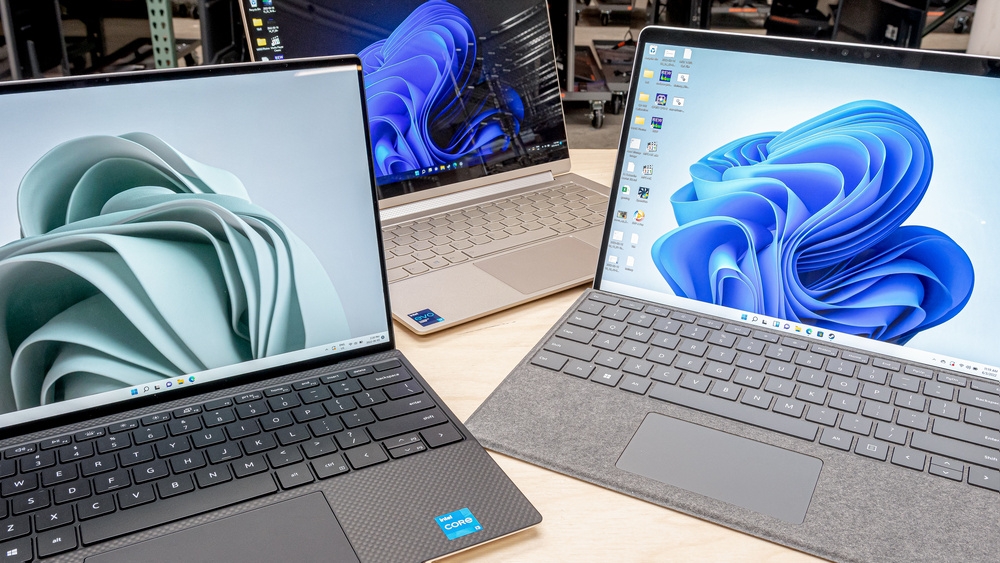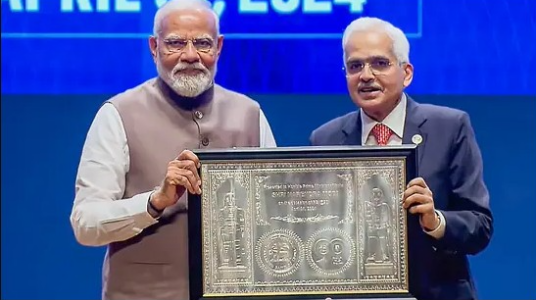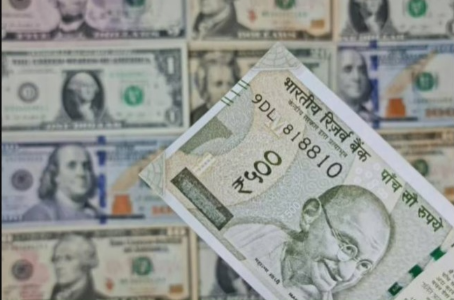Govt of India Eases restrictions on Laptop & Computer imports Tweaking its policy
The government eased restrictions on laptop and computer imports on Thursday, allowing importers to bring in shipments of IT hardware from outside with a simple 'authorisation' indicating quantity and value.

The new 'import management system' is intended to monitor shipments of laptops, tablets, and desktops into the nation without disrupting market supply or imposing an onerous licensing regime.
The news is likely to bring comfort to Indian IT hardware businesses, who had expressed worries over the installation of a rigorous licensing scheme for imports. HCL, Samsung, Dell, LG Electronics, Acer, Apple, Lenovo, and HP are among of the market's leading electronic brands.
Santosh Kumar Saranagi, Director General of Foreign Trade (DGFT), told reporters here that the new licensing or import authorisation/management system, which will go into effect immediately, is primarily aimed at monitoring imports of these products to ensure that they come from "trusted" sources.
While seeking the permission, an importer will have to supply an import item overview and data of prior import, export, and turnover. The government will not reject any import requests, subject to specified requirements, and will utilize the data to monitor the inbound shipments of these commodities.
Saranagi stated that after taking into account the sector's stakeholders' concerns, some "tweaking" in the policy was done, and an end-to-end online system for importers was introduced.
According to S Krishnan, Secretary of the Ministry of Electronics and Information Technology (MeiTY), this system would "provide us with the kind of data and information (that) we need to ensure that we have a completely trusted digital system in this country."
Following concerns voiced by the sector, the government declared import limitations on August 3rd, only to abruptly postpone the decision on August 4th, claiming that the licensing system will take effect on November 1st.
According to an official, the new online method is less complicated than the previous one.
Importers may apply for numerous authorizations, and such authorizations are valid until September 30, 2024.Import permits will be provided for any number of consignments until September of the following year.
Krishnan stated that the government will review the data, consult with the business, and then determine how to proceed beyond September 2024.
"The intent is not to cause any kind of inconvenience or difficulty, nor to impose any unnecessary restrictions on any of the players involved," the MeiTY secretary explained, adding that the goal is to stimulate the creation of more and more electronic gear in the nation.
Electronics will become the world's largest manufacturing industry, not only in India, and India has to have a strong presence in the sector, he continued, and these steps would help in reaching that overall aim.
"The goal is to provide certainty for the next year or so." "We are just launching the system, studying it over a fairly long period of time based on whatever data we can get (and) based on the type of interaction we have with stakeholders," the secretary added.
According to Sarangi, with this import management system, the government would have precise data on particular items arriving from various sources, which they can then monitor in consultation with stakeholders.
According to DGFT, the system would be faceless and contactless, with no problems for importers to fill out their information.
To secure India's trusted supply chain, the new license system applies to laptops, personal computers (including tablet computers), microcomputers, big or mainframe computers, and some data processing devices.
He also stated that firms on the "denied entity list" will not be granted permission.
Firms on such a list have not met or defaulted on export responsibilities by taking advantage of programs such as advance authorization and Export Promotion Capital Goods (EPCG), or have DRI (Directorate of Revenue Intelligence) proceedings against them.
Sarangi stated that, despite the implementation of an online system, certain IT hardware goods remain "restricted" and "there is no change in that."
When questioned if the new system will result in higher costs for certain commodities, Krishnan stated that they do not expect supply to be curtailed in any way, which would cause prices to rise.
"Supply will continue both from domestic and imported sources and we believe, as domestic production (will increase), overall supply will increase and prices will either stay where they are or they will come down,"he added.
The secretary also stated that several applications have been received under PLI and are now being reviewed, with the process expected to be finished within one to two months.
When asked if the government would remove the August announcement, the DGFT stated that it would not, and that a clarification would be made to implement the new online authorization system for these imports.
The DGFT has granted multiple exemptions to various companies.
According to a notification, these IT hardware goods made in Special Economic Zones (SEZs) can be imported into domestic tariff regions (outside SEZs) without requiring any import authorization, subject to payment of appropriate tariffs, if any.
Private enterprises who import certain items for delivery to central and state government agencies or undertakings, or for defense purposes, are excluded from obtaining this import permit.
Furthermore, SEZ units, export-oriented units, Electronics Hardware Technology Park (EHTP), Software Technology Park, and Bio-Technology Park are exempt from obtaining a "restricted import authorisation" for the import of this IT hardware.
The limits also do not apply to luggage imports, and the import of one laptop, tablet, personal computer, or ultra-small form factor computer, including those acquired via e-commerce sites by post or courier, is excluded.
Following the granting of an import authorization, the amount specified on a valid authorization may be altered at any time, provided that the overall value of the import remains intact.
Import restrictions on laptops, computers (including tablet computers), microcomputers, big or mainframe computers, and some data processing devices were enforced by the government in August.
These five types of commodities will be covered by the import management system, and approval will be necessary for customs clearance and will be granted in an end-to-end online manner.
In 2022-23, India bought these items valued USD 8.7 billion, compared to USD 10.3 billion in 2021-22 and USD 7.1 billion in 2020-21.
In 2022-23, the country imported personal computers, including laptops, worth USD 5.33 billion, down from USD 7.37 billion in 2021-22.
China (USD 5.11 billion), Singapore (USD 1.4 billion), Hong Kong (USD 807 million), the United States (USD 344.7 million), Malaysia (USD 324.8 million), Taiwan (USD 272.5 million), the Netherlands (USD 132.8 million), and Vietnam (USD 126 million) were the main countries from which these goods were imported in the previous fiscal year.
In May, the government approved the Rs 17,000 crore Production Linked Incentive (PLI) Scheme 2.0 for IT Hardware.
The project for IT gear, comprising the manufacturing of laptops, tablets, All-in-One PCs, and servers, was authorized in February 2021, with an investment of Rs 7,350 crore.
(With inputs from PSUwatch)
Bharati Web






